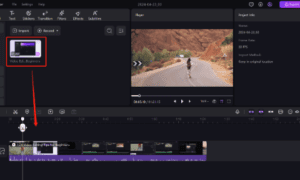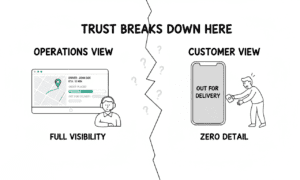Freelancing in the UK has exploded in popularity over the past decade. Whether you’re a graphic designer in Brighton, a copywriter in Manchester, or a developer working remotely from the Scottish Highlands, there’s never been a better time to work for yourself. But with that freedom comes a fair bit of responsibility—especially when it comes to finances. That’s why accountants for freelancers have become an essential part of the self-employed toolkit. You might think you can handle it all on your own, but once you understand everything an accountant can do for you, you’ll likely change your mind.
Let’s explore why expert accounting support isn’t just helpful—it’s critical for freelancers in the UK.
1. Freelancing and Finances: A Complicated Relationship
When you’re freelancing, you’re not just doing the work you love—you’re running a business. That means invoicing clients, tracking expenses, managing income fluctuations, planning for taxes, and staying compliant with HMRC regulations. Even if you’re good with numbers, juggling all of that while trying to grow your career can quickly become overwhelming.
The UK tax system isn’t the easiest to navigate. From self-assessment returns to VAT thresholds, Class 2 and 4 National Insurance contributions, and Making Tax Digital regulations, there’s a lot to keep track of. One missed deadline or minor miscalculation can result in hefty penalties. Expert accounting support helps you avoid those risks while freeing you up to focus on what you do best.
2. Tax Efficiency and Saving Money
This might surprise you, but hiring an accountant can actually save you money. A professional who understands the ins and outs of freelance tax law can spot deductions and reliefs you might miss—mileage, home office expenses, equipment, training, software subscriptions, and more.
You might be overpaying without even knowing it. An expert accountant will help you structure your finances in the most tax-efficient way possible. They’ll also guide you on when (or if) it makes sense to switch from sole trader to limited company, which could reduce your tax bill depending on your earnings.
In short, it’s not just about avoiding fines—it’s about keeping more of what you earn.
3. Financial Clarity and Peace of Mind
Let’s face it: finances can be stressful, especially when you don’t fully understand them. If you’ve ever stayed up late googling “how to fill out a self-assessment tax return” or panicked about whether you’ve set aside enough for your tax bill, you know the feeling.
With an accountant by your side, you don’t have to worry. You’ll get clear insights into your financial position, help forecasting for the future, and advice tailored specifically to freelancers. It’s not just about doing the math—it’s about having someone in your corner who helps you make smart financial decisions.
4. Staying Compliant with HMRC
The UK tax authority doesn’t play around. From annual self-assessment tax returns to quarterly VAT submissions (if registered), freelancers have a legal responsibility to report their income correctly and on time. Mistakes can be costly—not just financially but in terms of your reputation with HMRC.
Expert accountants stay on top of changing tax laws and deadlines. They’ll make sure your paperwork is correct, submitted on time, and compliant with all current regulations. They can even act as your agent and communicate directly with HMRC on your behalf. That’s one less stress to deal with.
5. Guidance on Business Structure
Should you operate as a sole trader, or is it time to set up a limited company? What about partnerships or umbrella companies? Choosing the right structure for your freelance business has major tax and legal implications.
An expert accountant will assess your situation—your income level, long-term goals, risk exposure, and preferences—and guide you toward the best setup. As your business grows, they’ll help you know when it’s time to make changes. This kind of proactive advice can help you avoid big mistakes early on.
6. Help With Invoicing and Payment Tracking
Getting paid is the lifeblood of freelancing—but managing invoices, chasing late payments, and tracking income across clients can be a full-time job in itself. While some freelancers use spreadsheets or basic software, these systems can easily become disorganized or lead to errors.
Many accountants offer cloud-based tools or integrate with platforms like Xero, FreeAgent, or QuickBooks, making it easier to manage invoices, track income, and stay on top of your cash flow. With professional support, you’ll get a streamlined process and better visibility over who owes what—and when.
7. Preparing for the Future
It’s easy to focus on the here and now, especially when you’re hustling to land your next gig or chasing a late-paying client. But freelancers need to think ahead, too.
Do you have a pension plan? Are you setting aside money for slow months or emergencies? What about saving for a mortgage or future investment?
An accountant can help you create a realistic financial plan for the future. They’ll help you forecast earnings, set savings goals, and prepare for major life events. Whether you want to take a sabbatical or scale your business into an agency, financial planning is crucial.
8. Handling VAT and Making Tax Digital (MTD)
If you hit the VAT registration threshold (currently £90,000 in annual turnover), you’re required to register for VAT and submit your returns digitally. This is where things can get complicated—especially with HMRC’s Making Tax Digital initiative, which requires compliant software and timely digital submissions.
Even if you’re not quite at the VAT threshold, knowing when to register voluntarily or how to handle VAT as a freelancer working with clients abroad can be confusing. An expert accountant will guide you through the process, ensure compliance, and help you avoid costly mistakes.
9. Audit Support and Representation
Most freelancers won’t ever face an audit, but it can happen—especially if HMRC spots inconsistencies in your filings. If you’re audited and don’t have professional support, it can be stressful, time-consuming, and overwhelming.
Accountants not only help reduce your chances of an audit by keeping everything clean and compliant, but they can also represent you during the process. They’ll handle communication, respond to HMRC inquiries, and defend your records if needed. That peace of mind is worth its weight in gold.
10. You’re Not Alone—And You Don’t Have to Be
One of the biggest challenges of freelancing is the sense that you’re in it alone. You don’t have a payroll department, an HR team, or a finance division to lean on. But you can have a team of trusted professionals in your corner—and an accountant should be one of the first.
A great accountant doesn’t just crunch numbers. They become a partner in your freelance journey, helping you grow your business, make smart decisions, and avoid unnecessary setbacks.
Conclusion: The Right Support Makes All the Difference
Freelancing in the UK is exciting and rewarding, but it’s also filled with financial challenges that can hold you back if you’re not careful. From saving money on taxes to managing cash flow and staying compliant with HMRC, professional accounting support is more than a nice-to-have—it’s essential.
If you’re looking for trusted, experienced accountants for freelancers who understand the unique needs of self-employed professionals in the UK, it’s worth checking out Lanop Business & Tax Advisors. They specialize in working with freelancers and small businesses, offering tailored support, clear advice, and smart solutions to help you thrive.



































